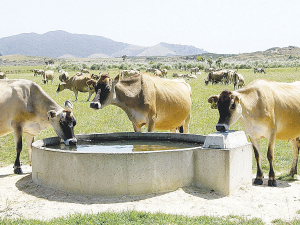Ensuring your cows have the best mating this season
Hit the ground running this mating with these foundations for success.
 Animal health and welfare is a top priority as the dairy sector experiences dwindling magnesium supply.
Animal health and welfare is a top priority as the dairy sector experiences dwindling magnesium supply.
Dairy farmers are facing a tight supply of magnesium due to Covid-19 related shipping delays.
DairyNZ general manager farm performance Sharon Morrell says shipping woes have caused disruption for some magnesium supply into New Zealand.
Retailers of magnesium, DairyNZ, NZ Veterinary Association and Ministry for Primary Industries (MPI) have met to better understand the extent of the disruption.
Morrell says they are working together to ensure animal health and welfare needs can be addressed.
<p."Supplies of magnesium are tight across all suppliers across the country but there is a plan in place to manage critical animal health needs," she says. "A number of shipments are due this month, and we anticipate this will ease the supply situation."
Animal health and welfare is a top priority for everyone in this sector and farmers are being urged to continue talking to their retailers about theier specific needs.
Morrell is also urging farmers to manage their magnesium stocks well.
"Share any excess with others, talk to retailers about specific needs and check with your vet or farm consultant before implementing major changes to your normal plan, or if there are animal health issues on farm that are different to a usual season.
Tips to Manage Use
Pre-Calving
Post calving/p>
Dairy Women's Network (DWN) is welcoming AgriHealth as a new partner.
Northland Field Days patron Ross Newlove remembers the inaugural field days he attended 40 years ago.
Southland farmer Murray Donald has been appointed as chair of Safer Farms, the industry-led organisation focused on reducing harm, injuries and fatalities in the agricultural sector.
National Lamb Day returns this Sunday, 15 February, with Beef + Lamb New Zealand Inc calling on Kiwis to fire up their barbecues and celebrate the people and the product that put New Zealand on the world map.
When it comes to arranging the sound system at Northland Field Days, no one does it better than Colin Finlayson.
A 40th Anniversary event to remember.